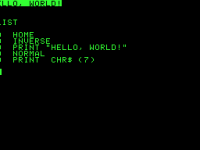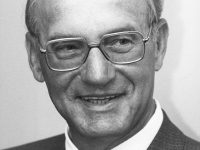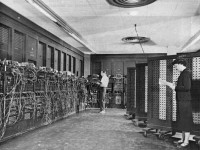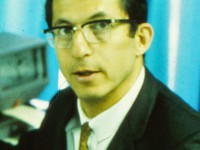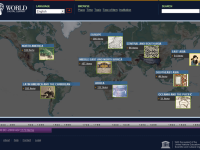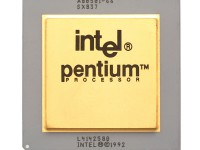The BASIC Programming Language
On May 1st, 1964, the original BASIC programming language was released by John Kemeny and Thomas Kurtz, implemented under their direction by a team of Dartmouth College students in New Hampshire. Their initial goal was to enable students in fields other than science and mathematics to use computers. At the time, nearly all use of computers required writing custom software, which was something only scientists and mathematicians tended to learn. Actually, BASIC also was…
Read more

